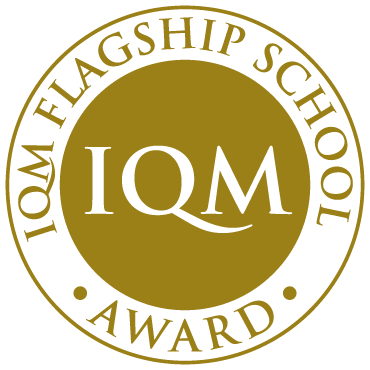Performing Arts & Drama
The KS3 Performing Arts Curriculum:
The course allows new comers to the discipline to build their performance skills both on stage and behind the scenes. The focus of the KS3 course is very much on transferrable vocational skills and to be able to develop the confidence and teamwork skills necessary for short performances to peers and others. This is a valuable course in that it allows students a chance to be creative and collaborative, as well as bringing their wider knowledge and experiences to the course. The key focus for the curriculum is opportunities to perform with control and mastering the conventions of drama. We also provide plenty of opportunities for students to visit performances and experience the wonderful world of Performing Arts.
Experiential and Empathic drama (Year 7 and 8):
This course allows students to develop their basic skills in the conventions of drama and performing arts. It allows them to experience a wide range of topics and styles within the performing arts world and also to develop empathy skills and vocational skills that are transferable. Students are encouraged to work collaboratively and perform to their peers and other audiences where applicable. All students explore ways of enhancing their confidence in a safe performance space on both long term and short term projects.
Year 7
In Year 7, students begin their drama journey by exploring the basics of drama, such as how to conduct small group work, hot-seating, thought tracking, performing.
Term 1: An introduction to Drama
Students learn to work safely and to develop the skills of teamwork, communication and co-operation.
Example: Small group and whole group opportunities for original performance of short scenes.
Term 2: Perseus & Medusa
Students develop a larger original performance piece based around Greek myth. They explore the beginning of the theatre and why that is important in the 21st century.
Example: Short stories and poems are used as a stimulus to develop original ideas based on a Greek myth.
Term 3: Missing Girl
Students use primary news reports and evidence to build up a murder mystery, looking at suspense and dramatic structure.
Example: Narrative structure is explored as well as detailed research into the given topic in order to provide depth of story and character development.
Year 8
In Year 8, students build on their skills developed in dramatic performance and begin to explore different genres, concentrating on mood and atmosphere and using primary and secondary sources as evidence. They also explore the skill of improvisation and rehearsal skills.
Term 1: Darkwood Manor
Students explore the conventions of the traditional ghost story and develop this into a lengthy performance that focuses on mood and atmosphere. They also begin to develop skills in theatre stage design, dramatic tricks and illusions, the use of props and the concept of the 'unreliable witness.'
Example: The use of traditional ghost stories as a stimulus to further develop performance ideas and dramatic skill.
Term 2: The Robert Johnson Story
Students use the Robert Johnson story to explores cross overs into music and musical history. This story is based and the beginnings of the blues and the development of the modern myth of the performer.
Example: Developing the use of evidence, myth, legend to create an original interpretation of the original narrative.
Term 3: Scripted Performance
Students use scripted work (including Shakespeare) to develop a performance. They will use extracts of plays to explore the conventions of script, direction and stage skills in order to perform a finished play.
Example: The use of a range of printed plays.
Year 9
In Year 9, students refine their performing arts management skills in developing a piece of Theatre in Education aimed at a Primary aged audience on an issue of their choice.
Term 1: Creative ideas and the business pitch
Students use the creative and design process to develop an original invention. They then create the materials and script for a rehearsed business pitch with power points, models, pamphlets and a rehearsed script which will be presented in a 'Dragon's Den' style format,
Example: Developing creative thinking skills to generate and idea that can be carried forward in a rehearsed business pitch like Dragon's Den.
Term 2: Developing a scripted piece of 'Theatre in Education'.
Students, in small groups, develop their original script aimed at primary aged children. This script should explore an 'issue' that the children can learn about and explore in the format of Theatre in Education.
Example: Students create and run a small performing arts company that develops ideas and script/performance aimed at the Primary School market
Term 3: Marketing and Performance
Students rehearse and produce their finished ideas and look at using video and modern technology methods to market their idea to prospective customers.
Example: Students realise their idea into a finished performance and examine how this work can be marketed to the public.
The KS4 PA Curriculum
WJEC Level 1/2 Vocational Award in Performing Arts - Drama Pathway
What Will I Study?
You will develop the skills and techniques needed to perform dramatic works and create original devised drama. You will explore various aspects of theatre production and learn how to respond creatively to industry briefs.
Unit Breakdown
This qualification is made up of 3 units:
Unit 1: Performing - Drama
Unit 2: Creating - Devised drama
Unit 3: Performing Arts in Practice - Apply your skills in response to a brief.
Key Skills and Knowledge Developed
You will develop communication, confidence, independent learning, organisation, problem solving, research, self-discipline, stamina, responsibility, and time management.
Future Career Pathways and Further Study Opportunities
Career options include: Actor, Director, Drama Therapist, Stage Manager, Arts Administrator, Drama Teacher. This course also prepares you for further study in drama and related fields.
Extra-curricular Performing Arts activities
- KS3 Drama Club (Wednesdays after school)
- Theatre trips
- Visiting theatre groups/performance







 ↑
↑



